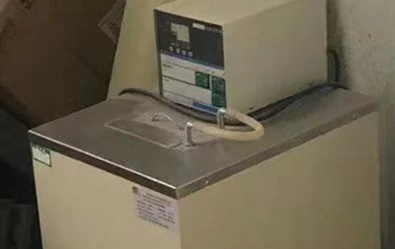loading...
- No. 9, Xingyuan South Street, Dongwaihuan Road, Zaoqiang County, Hengshui, Hebei, China
- admin@zjcomposites.com
- +86 15097380338
- Welcome to visit our website!
water softener
The Importance of Water Softeners Enhancing Home Water Quality
Water quality is a vital aspect of our daily lives, influencing everything from the taste of our drinking water to the efficiency of our appliances. One common issue faced by many households is hard water, which contains high levels of minerals like calcium and magnesium. These minerals can create various problems, including scale buildup, reduced appliance efficiency, and negative effects on skin and hair. To address these issues, many homeowners are turning to water softeners, devices designed to improve water quality and enhance the overall living experience.
Understanding Hard Water and Its Effects
Hard water is formed when water percolates through mineral-rich soils and rocks. As it travels, it dissolves minerals, leading to high levels of calcium and magnesium. While hard water is not harmful to human health, it can cause several inconveniences. One of the most noticeable effects is the formation of scale buildup in pipes and appliances, such as dishwashers and water heaters. This buildup not only reduces the efficiency of these appliances but can also lead to costly repairs and replacements over time.
In addition to the impact on appliances, hard water can adversely affect skin and hair. Many people with hard water experience dry skin, irritation, and hair that feels dull and lifeless. Soap and shampoo do not lather effectively in hard water, which can lead to an excess of soap scum on both skin and hair. This can be particularly frustrating for those looking for a luxurious bathing experience.
The Functionality of Water Softeners
Water softeners work by employing a process known as ion exchange. In this process, hard water passes through a tank containing resin beads, which are charged with sodium ions. As the hard water flows through the tank, the calcium and magnesium ions are attracted to the resin beads and exchanged for sodium ions. The result is water that is significantly softer and devoid of the minerals that cause hardness.
water softener

Once the resin beads become saturated with calcium and magnesium, they need to be regenerated. This is typically achieved by flushing the beads with a salt solution, which replenishes the sodium ions and allows the softening process to begin anew. Many modern water softeners come with built-in timers and monitors that allow for efficient regeneration cycles, ensuring that the water remains consistently soft.
The Benefits of Using a Water Softener
The advantages of installing a water softener are numerous. Firstly, homeowners can enjoy improved water quality for drinking, bathing, and cooking. Softer water can enhance the taste of beverages and food, while also providing a luxurious bathing experience that leaves skin feeling soft and hair looking vibrant.
Secondly, water softeners can extend the lifespan of appliances. By preventing scale buildup in pipes and appliances, homeowners can avoid costly repairs and maintain the efficiency of their washing machines and dishwashers. This can lead to long-term savings on energy bills and maintenance costs.
Furthermore, softer water can reduce the amount of soap and detergent needed for household cleaning tasks. Since soap lathers more effectively in soft water, users can enjoy cleaner dishes, clothes, and surfaces with less product, which is both economical and environmentally friendly.
Conclusion
In conclusion, water softeners offer a practical solution for those struggling with hard water issues. By improving water quality and providing numerous benefits, from enhanced appliance efficiency to better skin and hair care, these devices have become invaluable to many households. Investing in a water softener can lead to a more comfortable and cost-effective living environment. For anyone facing the challenges of hard water, embracing the technology of water softeners is undoubtedly a step toward achieving better water quality in their home.
-
The Rise of FRP Profiles: Strong, Lightweight, and Built to LastNewsJul.14,2025
-
SMC Panel Tanks: A Modern Water Storage Solution for All EnvironmentsNewsJul.14,2025
-
GRP Grating: A Modern Solution for Safe and Durable Access SystemsNewsJul.14,2025
-
Galvanized Steel Water Tanks: Durable, Reliable, and Ready for UseNewsJul.14,2025
-
FRP Mini Mesh Grating: The Safer, Smarter Flooring SolutionNewsJul.14,2025
-
Exploring FRP Vessels: Durable Solutions for Modern Fluid HandlingNewsJul.14,2025
-
GRP Structures: The Future of Lightweight, High-Performance EngineeringNewsJun.20,2025
